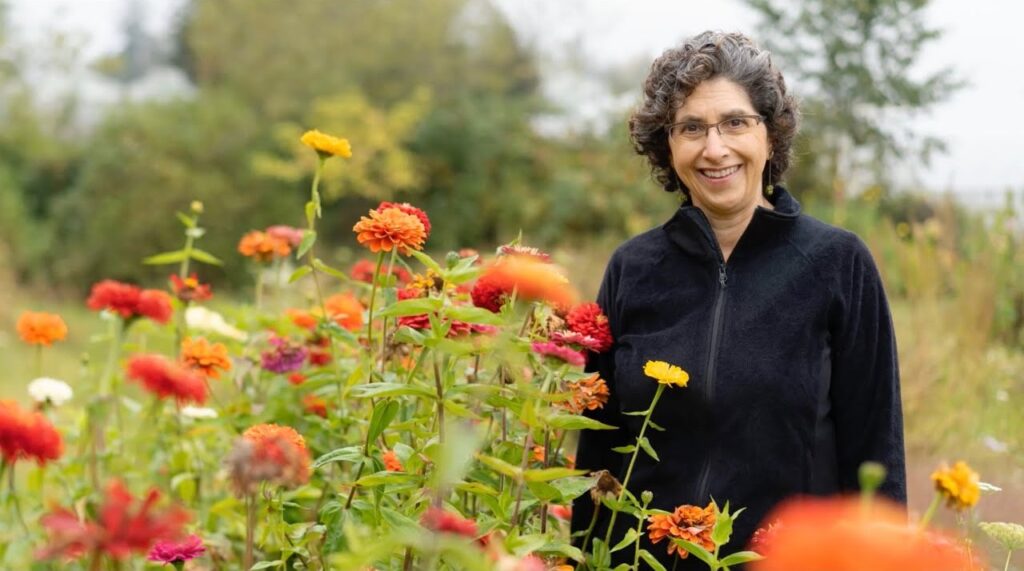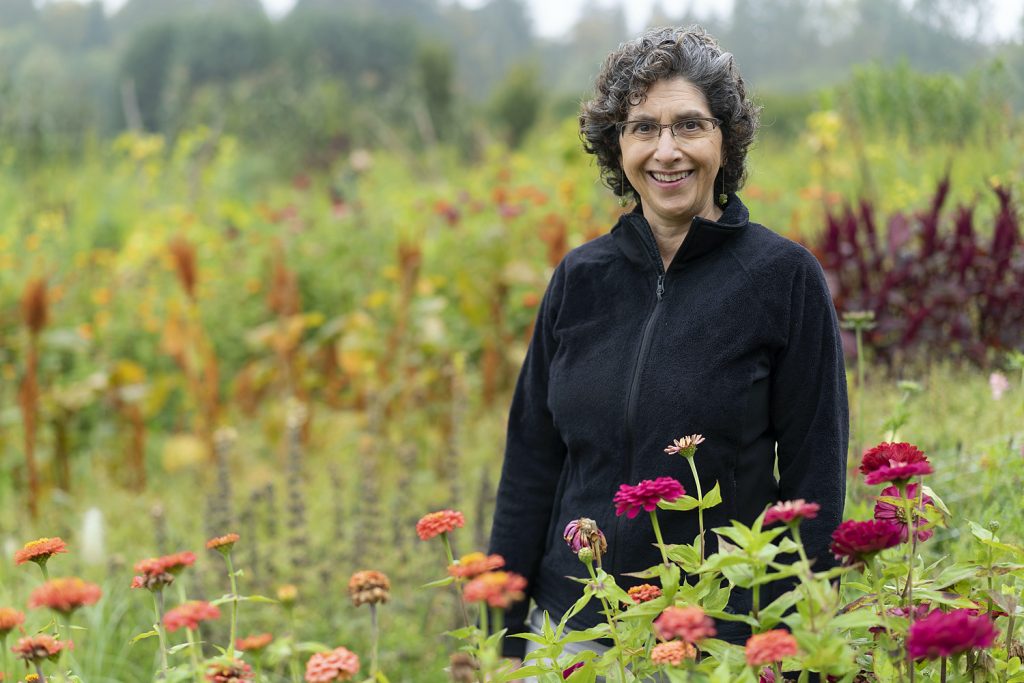“Insects are the little things that run the world”
The world is losing species at an alarming rate. The forests and wild areas of the Earth are rapidly transformed into farmlands, pushing wildlife into steep decline.

Why it is crucial to conserve biodiversity
A way to reverse this catastrophic trend is to change the working lands – agriculture, forestry, and ranches – to more diverse landscapes to preserve biodiversity. Conservation biologist Professor Claire Kremen is the 2020 laureate of the Volvo Environment Prize for her world-class research on how humanity can feed itself while protecting biodiversity. National parks and reserves have been the cornerstone of traditional nature conservation, such as the Serengeti or Kruger Park in Africa. Without these national parks, it would perhaps not be possible to see wild elephants or lions anymore. But only about 15 percent of the world’s surface is protected. The lands where humans are farming, doing forestry, and ranching make up between 60 -70 percent of terrestrial Earth’s surface. These lands are often managed in a way detrimental to wild plants, animals, and insects.
“With very large-scale agriculture, we are simplifying the landscapes a lot. It makes them much less hospitable for most species”, says Claire Kremen, a professor in biodiversity, University of British Columbia, Vancouver, Canada.
According to a recent report by the conservation group WWF, the wildlife population has fallen by more than two-thirds in less than 50 years. They recorded an average 68 percent fall in more than 20,000 species of mammals, birds, amphibians, reptiles, and fish since 1970.
Less known is the decline of insects. Claire Kremen is an expert on wild bees and says she’s concerned about insect declines.
“Insects are the little things that run the world,” says Kremen, quoting famous Harvard biologist E.O. Wilson.
“Insects are at the base of the food chain for many organisms. If we didn’t have pollinating insects, we’d be interfering with the reproduction of about 90 percent of plant species. And, 75 percent of the crops we humans eat benefit from insect pollinators’ visits. So, we really need these creatures. If we don’t have them, we’re not going to have all the fruits and vegetables that are so important for our nutrition”.
Reversing the trend is still possible, she says. A way to do it is by transforming the working lands to make them more diverse, by having different crops grow within the same field, planting hedgerows, and lining the fields with shrubs and trees. It would be a mixed landscape of many crops, pastures, and small areas of native vegetation and forest borders along streams.
 “If we didn't have pollinating insects, we'd be interfering with the reproduction of about 90 percent of plant species”
“If we didn't have pollinating insects, we'd be interfering with the reproduction of about 90 percent of plant species”
Critics of this type of farming and the concept of agroecological landscapes say that they are much less productive, with smaller yields in a world where the human population is approaching 8 billion people.
“If we didn’t have pollinating insects, we’d be interfering with the reproduction of about 90 percent of plant species”
“I would push back on that,” says Claire Kremen. “Some of our agriculture is producing food at a high cost. It produces a lot of greenhouse gases or produces nutrients that end up causing dead zones in the ocean. Sometimes the soils have been mined of their fertility, and they can’t be productive in the future”.
“Diversified working lands, on the other hand, can be extremely productive. Farmers could promote natural pest control by harnessing the powers of nature, thus reducing the need for pesticides. We would preserve the ability to provide clean water, to store carbon in the soils, to provide habitat for biodiversity, even to provide beautiful landscapes that people enjoy.”